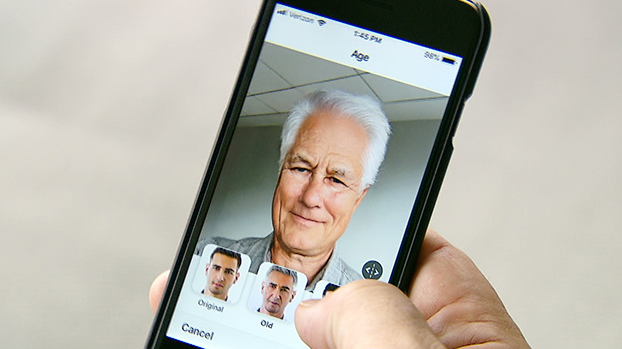If you’ve been on social media in the last few weeks, you may have seen images of your friends looking suddenly different after using FaceApp — a free service which uses artificial intelligence to dramatically change pictures.
CGTN’s Jim Spellman has a look at how the app is causing some controversy.
Once downloaded to an iPhone or Android device FaceApp asks users for a photo from their camera roll or to snap a selfie. Then the app goes to work, altering images to make the subject look older or younger or with different hairstyles or expressions.
Users said it’s a lot of fun but the app is raising privacy concerns. Using the app allow the company to use the pictures forever, for just about anything. The company may also place so-called “device identifiers” on phones and track which websites they visit and other information.
“There are some reasons to be concerned. For example, the terms of use really restrict the rights of the users and there is concern that you are giving up the privacy of your biometric or face ID information… what we’ve learned in the technology space is that your ability to track people continues to get better and better,” Rich Tehrani, futurist at TMCnet said.
FaceApp, developed by a company called Wireless Lab, is headquartered in this building in St. Petersburg, Russia. Privacy advocates worry the company may share user data with the Russian government.
But FaceApp said even though they’re located in Russia, user photos are stored on U.S.-based servers and are generally deleted within 48 hours.
A top U.S. Senator, Chuck Schumer, has called for an FBI investigation, and U.S. military leaders are warning service members to be wary of the app.
“All of this means that it’s easier for governments, even companies, to track us everywhere. Not just our thoughts and our conversations, but now where we’re going, what we look like and even what we WILL look like. That’s the scariest of all,” Tehrani said.
But many younger users don’t seem too worried about giving up a little privacy.
“I feel like these apps are kind of here to stay. People are getting addicted to them. They’re going viral. So I don’t know if it’ll limit my use but it’s definitely made me think a lot more about it. Until I have a little bit more proof, I probably would keep using the app,” Courtney Johnk, a FaceApp User said.
Roger Entner talks Russian tech ahead of US 2020 elections
CGTN’s Rachelle Akuffo spoke with Roger Entner, founder and lead analyst of Recon Analytics, about Russian technology ahead of the 2020 US Election.
 CGTN America
CGTN America

